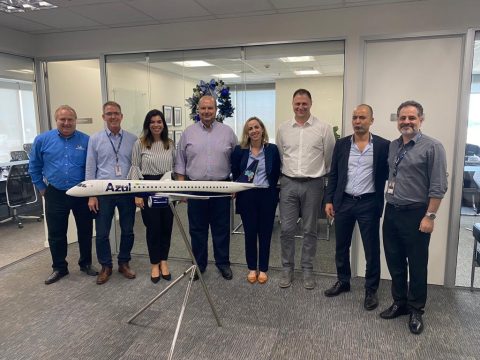In favor of an increasingly sustainable mobility, the initiative ensures greater flexibility in the transport of products with a significant reduction in CO2
Azul and Michelin have jointly developed a plan to simplify the transport of tires purchased by the airline and which depart Thailand and travel to Campinas, in São Paulo. Running since August, the plan provides for a reduction of 103 tonnes of carbon dioxide emissions per year.
The project began in February of this year with the mapping of the logistics chain by the tire manufacturer, which identified that it would be possible to simplify the container route. Before, they departed by ship from Michelin’s main plant, in Thailand, bound for the Port of Savanah, in the United States. From there, they were sent to the company’s warehouse and, only after that, were they sent to Brazil. After a series of studies, a new strategy was designed and, as of the second half of this year, the cargoes went from Thailand directly to the Port of Santos or to the Airport of Guarulhos, from where they are transported to the Azul hangar, in Campinas (SP).
The abbreviation of the supply chain between the two companies also reduced the time taken to transport tires from Thailand to Brazil from 83 to 46 days. “We have a consolidated partnership with Michelin, of which we are very proud. This project we developed with them brings gains both from an environmental point of view, with the reduction of polluting gas emissions, and in terms of efficiency for our operation, ensuring even greater stability to our inventories”, says Flavio Costa, Azul’s Technical-Operational Vice-President.
According to Daniela Wolter, Michelin’s Aviation Tire Commercial Director, “Michelin has ambitious goals with regard to carbon neutrality by 2050. For this, we have initiatives with our suppliers and customers, in addition to simplifying our logistical and industrial processes. By demonstrating that partnerships between companies can – and should – bring sustainable gains to the planet, our project with Azul shows us, in practice, that this purpose will make us go even further together”.






